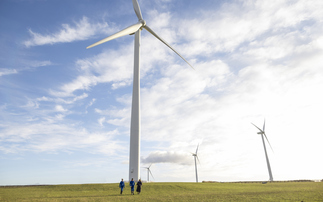Friends of the Earth's Donna Hume argues it is fossil fuel imports, not green levies, that are driving increases in energy bills
On Monday this week the Daily Telegraph misrepresented the advice issued by a senior government adviser in its warning that green energy policies could add £300 to people's energy bills. The idea that...
To continue reading this article...
Join BusinessGreen
In just a few clicks you can start your free BusinessGreen Lite membership for 12 months, providing you access to:
- Three complimentary articles per month covering the latest real-time news, analysis, and opinion from Europe’s leading source of information on the Green economy and business
- Receive important and breaking news stories via our daily news alert
- Our weekly newsletter with the best of the week’s green business news and analysis







